22 BEST Blogging Tools for Beginners to Save YOU Time in 2024

Looking for the best blogging tools that are perfect for beginners? I’m here to help!
Building a blog is a lot like building a house. Blogging would not be possible without the tools needed to make it happen.
And just like a house, those tools help us build an investment for our future.
We’re lucky to live in an age where we have the resources at our fingertips to get a content marketing plan underway with just the touch of a button.
Whether you’re just starting a blog or have been blogging for decades, understanding the right tools could save you time, money and energy.
At Bramework, we take blogging pretty seriously. That’s why I crafted this article covering more than 21 of the best blogging tools for beginners.

THIS POST MAY CONTAIN AFFILIATE LINKS. PLEASE READ THE DISCLOSURE FOR MORE INFO. Which means if you click on certain links, Bramework may receive a small commission at no additional charge to you.
22 Best Blogging Tools (Resources and Recommendations)
I will organize this guide based on your workflow as a blogger trying to get your blog from side-hustle to full-time!
With these tools, you can prepare an amazing content strategy that will drive traffic, engage your audience and track your progress for growth.
Do keep in mind that I put a mixture of budget-friendly options along with some of the best free blogging tools to get you started today.
1. Web Hosting and Domain Tools
Choosing the right domain and web host are the first steps in creating your dream blog. Where would the blog live without your website?
You have many CMS choices, however, WordPress and Wix seem to be on the top of the list amongst most. Be sure to do your research as they both have qualities that may be unique to your brand.

Choosing a host is equally as important as choosing your domain. There are many hosting options out there that offer various features and pricing. Here are a few of our recommended web hosting tools: Bluehost, WPEngine, GoDaddy.
One of the biggest and best tools for blogging is servicing your website regularly.
2. Website Optimization Tools
Once you have your website up and running, it’s ready for optimization.
With any blogging platform, there are several different ways you can keep your website speedy, safe and optimized for SEO.
For the purposes of this article, we are going to focus on WordPress.
WordPress offers both service, security and safety with most of their web hosting, however, you can add additional plugins for each as your website grows.
Create SEO-Optimized Blog Posts with First Draft PRO in Minutes!
👋 Say Goodbye to Endless Hours of Research and Writing
Here are a few of my favorite website optimization tools:
- File compression – GZIP compression allows for the reduction in the size of your HTML, stylesheets, and files.
- Page speed – GTmetrix manages how your website performs, tests page speed and optimizes for loading times.
- Page security – Jetpack has security, performance, and site management tools. There are also several others that are recommended for WordPress security on the WP Forms blog.
- Website maintenance – Wix has 24/7 support for customer care built into any paid plan. WordPress requires additional resources there. Recommended maintenance for small businesses is ParkerWeb. Professional and enterprise help can be found at Mackmedia.
- Performance – There are a series of plugins for WordPress that help with website performance. Check out Pingdom for tools, tests and more.
3. Character Calculator
I use the Character Calculator tool when writing blog posts to quickly check how many words, paragraphs or characters I’ve used.
It allows you to instantly check character count and word count, which adds valuable context for your readers.
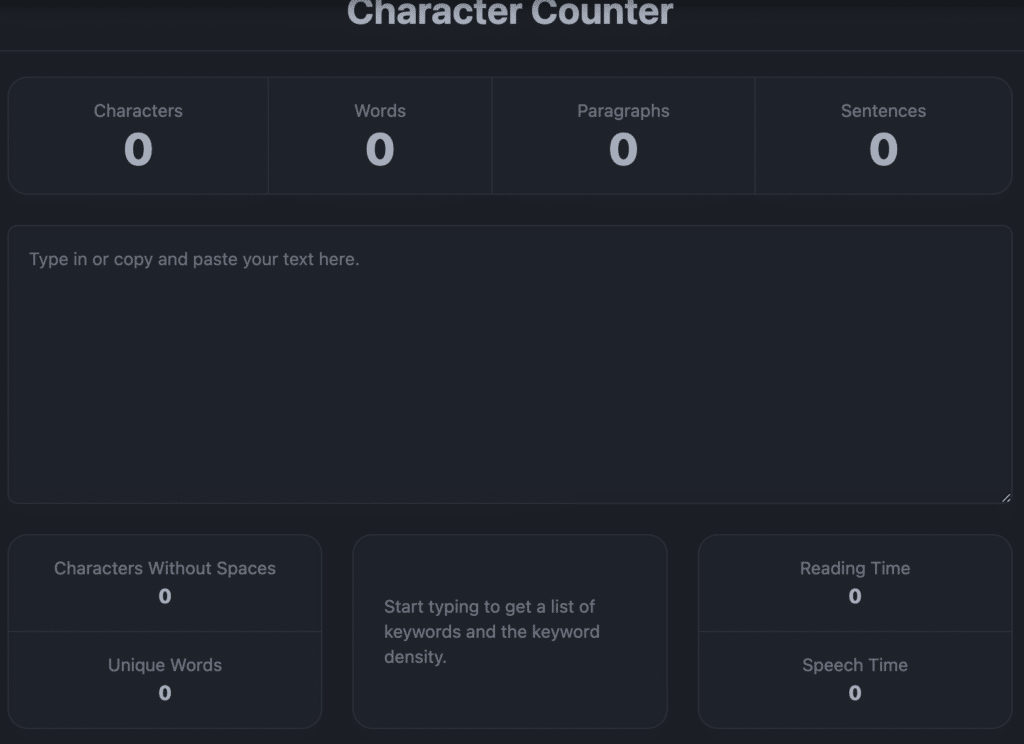
This is also great for you if you have any freelancers on your team and you need to quickly verify word count for any of the articles they submit to you.
It’s especially helpful when using Bramework’s social media caption generator for platforms like LinkedIn, Instagram, Facebook or X.
After generating a post, I can easily copy the text into a character counter to verify the exact word or character count, ensuring I stay within the platform’s limits.
🔍 Ultimate Keyword Planner
Find the best keywords, track trends, and gain SEO insights to boost your strategy. Analyze competitors, discover related keywords, and unlock top search terms—free!
4. Content Editing Tools
Editing can be incredibly time-consuming! I broke down how to write faster and tips for productivity for you and here are some tools used to do just that.

If you require desktop editors, Hemmingway App helps with sentence readability, formatting and reachability through paragraph highlights and quick editing techniques.
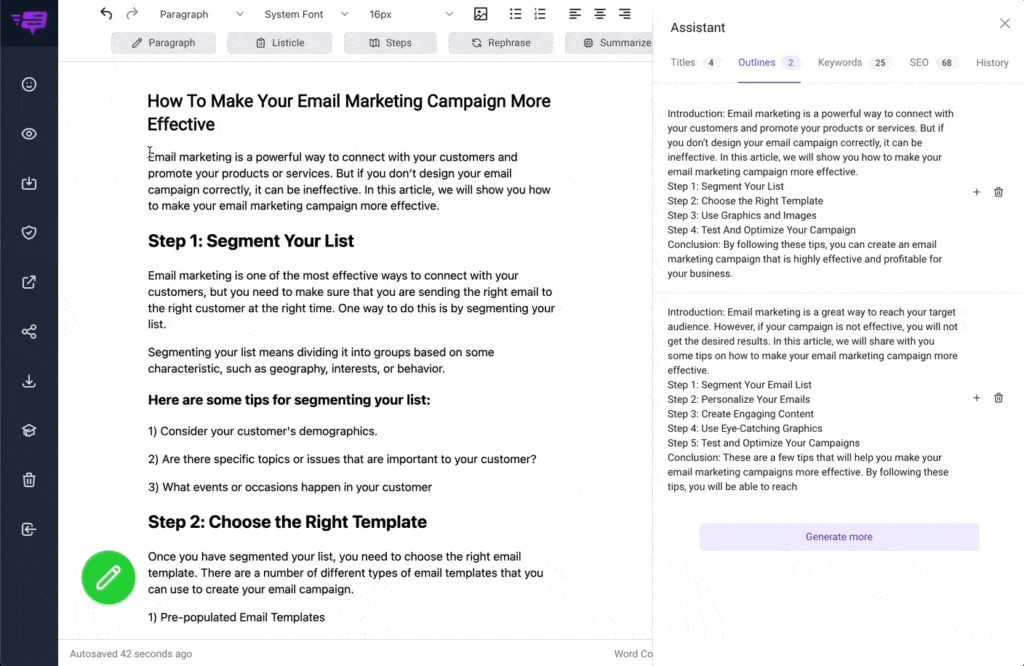
Check out the help of Grammarly, Bramework Plagiarism Checker, and Grammarbase are all great content editing tools as well.
5. Content Idea Generation Tools
Creating unique ideas for content can be a challenge!
Here at Bramework, we can help you find inspiration for blogging, simply by giving you the tools needed to get it done.
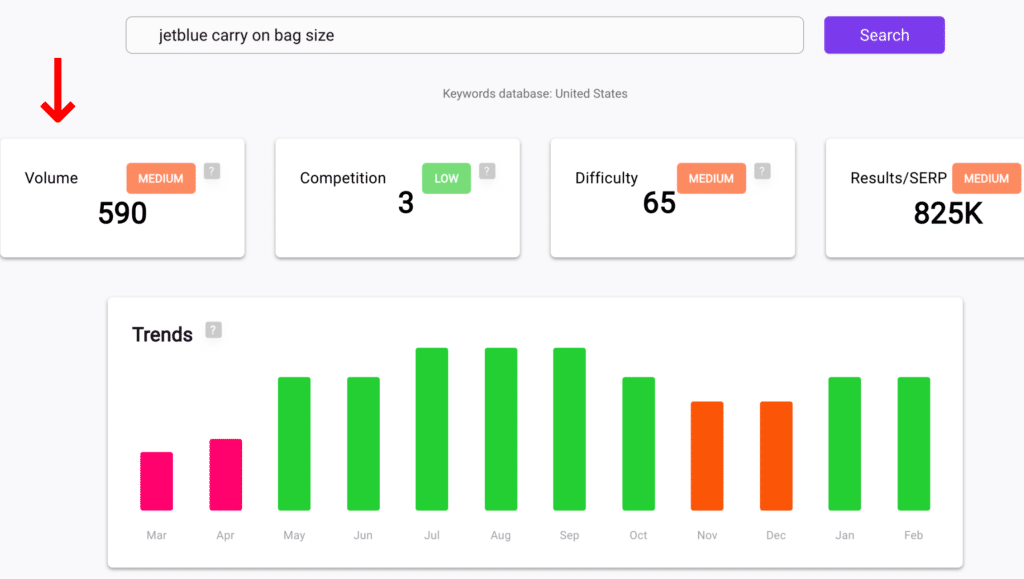
If you need some additional help exploring blog topic ideas, we suggest you try out HubSpot’s Blog Idea Generator. This is one of the best free blogging tools that you can use to generate new ideas, simply by typing in a noun to get started.
Portent is also a wonderful tool that is fun to use. Generate new ideas with the help of some friends.
You can get new topics going while laughing at their fun brand personality. It’s a win-win!
6. Blog Post Title Tools
Good news! Bramework’s got this one covered.
For the best tools for blogging, when it comes to titles – request early access to the Bramework blogging tool to see all of its features and updates.
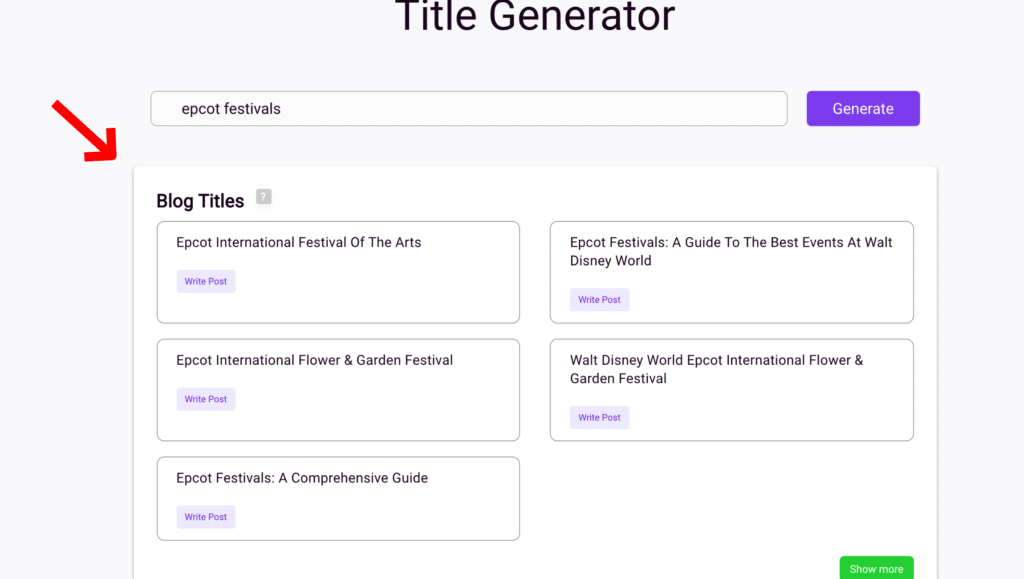
It automatically creates titles, content, finds images, and even formats the post based on the topic you select.
Bramework’s blog post title generator allows you to quickly and easily generate remarkable ideas for your next epic blog post.
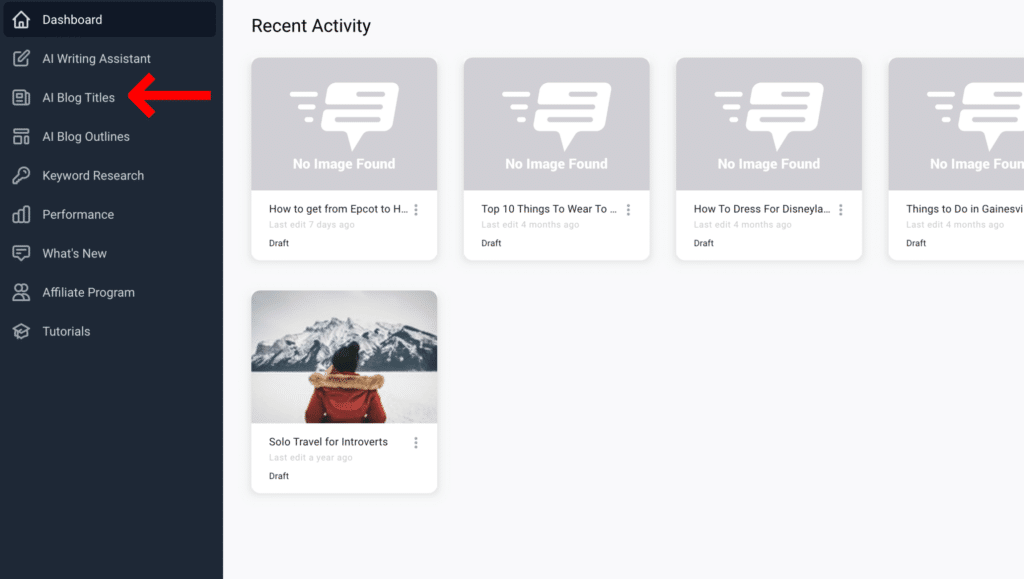
If you’re searching for emotional marketing tests and tools, be sure to check out Advanced Marketing Institute for their Emotional Marketing Value Headline Analyzer. That one is interesting!
7. Proofreading Tools
We’ve mentioned before how important it is to have quality content. Making sure you have correct spelling and grammar are crucial to content marketing success.

Grammarly is a great tool for quick spelling and grammar checks. They now have a cool new feature that helps with the voice and tone of the article too.
Additionally, ProWriterAid offers styling editing on top of spellcheck and grammar help. They offer free trials along with premium software integration options.
Proofread, proofread, proofread!
8. Stock Imagery Resources
Images are a key component of good content, plain and simple. If you have been writing content for a while, you probably know the stock imagery websites like Canva, Unsplash, Pixabay, and Flickr.
Did you know that Google Image Search allows for permission on royalty-free imagery as well?
Be sure you’re always incorporating image credit in your blog posts, that’s important for sourcing your articles.
The best tools for blogging when it comes to images are the image compression software we will get into in this article. Keep reading!
9. Content Research and Monitoring Software
While compiling your research, it’s important to do thorough research. There are many tools that can help you with this, most simply is Google search.

We found the best tools for blogging research and monitoring are BuzzSumo, Yelp, and basic social media networks.
If you’re interested in professional services for content monitoring, reporting, and research, DMCA has reasonable pricing options.
10. Image Compression Tools
If you’d like your website to run fast, one of the best tools for blogging is image compression. You want high-quality images for your content, without the loading issues involved.

If you’re a WordPress user, we recommend an awesome company by the WPMU Dev team called Smush, that compresses images and much more.
Optimize your images, turn on lazy load, resize, compress and improve your Google Page Speed with this free WordPress image compression plugin.
For smart PNG and JPEG compression, there is a tool called TinyPNG that’s free and easy to use. It reduces the file size of your PNG files so that your website remains fast.
Speed is the key to keeping people on your blog, make sure those images aren’t slowing it down!
11. Analytics Tools
Data tracking is imperative to learn what’s working for you.
If you aren’t a numbers person but you still want to learn about your growth, never fear – software is here to save the day!
There are hundreds of analytics tools to choose from. The best tools for blogging based on analytics are the following:
- Google Analytics and Google Site Kit – integrate your website for the most in depth website traffic analytics like audience visitor volume, time on page, referral source and more. This may require a little training as it can get very detailed!
- Moz – download and install the Moz chrome extension for detailed information about your website, competitors and backlink partners. The higher the Domain Authority, the more searchability it has. Plus, Moz has a super cool whiteboard videos to learn all about SEO.
- Ahrefs – free and paid plans to learn about organic traffic, paid advertising spend, backlink tracking and more.
- SEMrush – another awesome free and paid software all about organic traffic, paid advertising spend, backlink tracking and more.
12. Time Tracking & Productivity tools
Have we mentioned how important it is to be productive and save time yet? Well, that should be on the top of your list when it comes to the best blogging tools.
Depending on the type of work you do, you may need to track your hours, time spent on larger projects or just content strategy in general. There’s an app for that!
A few of our favorite time tracking tools are Asana, Trello and Toggl. Zapier wrote up this comprehensive article of the best time tracking apps available for more information.
13. SEO and Keyword Research
Keyword research is the first step you take when starting your content strategy. We literally could not do this without the power of the tools used to measure SEO.
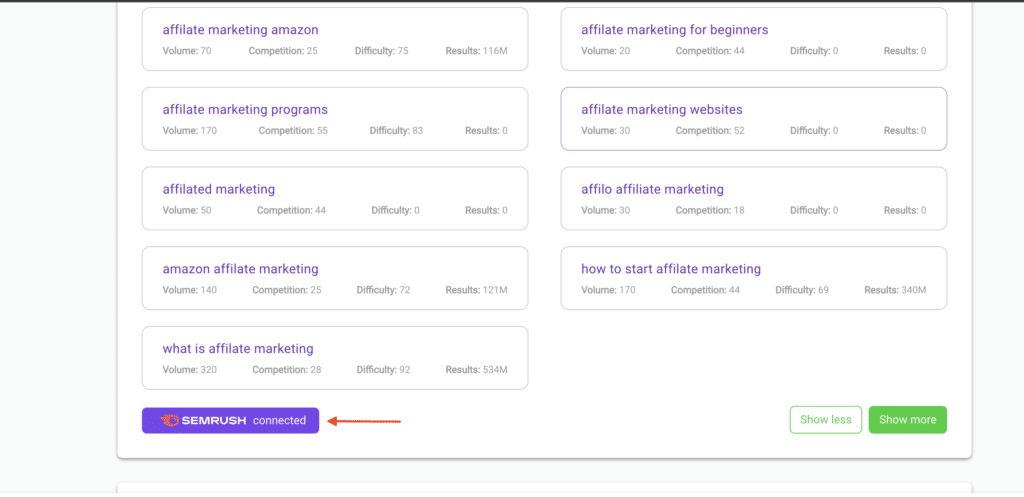
Like we mentioned earlier in our analytics tools, you have companies like Moz, Ahrefs, and SEMrush to help you understand the power of the keywords.
However, you will need to use some tools to enable your browser to find them first before you even try to analyze them.
One of the best tools when trying to come up with content topics, titles and ideas is the NEW Bramework tool!
This is the Bramework Keyword Research tool that shows you monthly search volume, CPC & competition data.
It shows you “related” keywords as well as top posts to review and the most common questions related to your keyword.
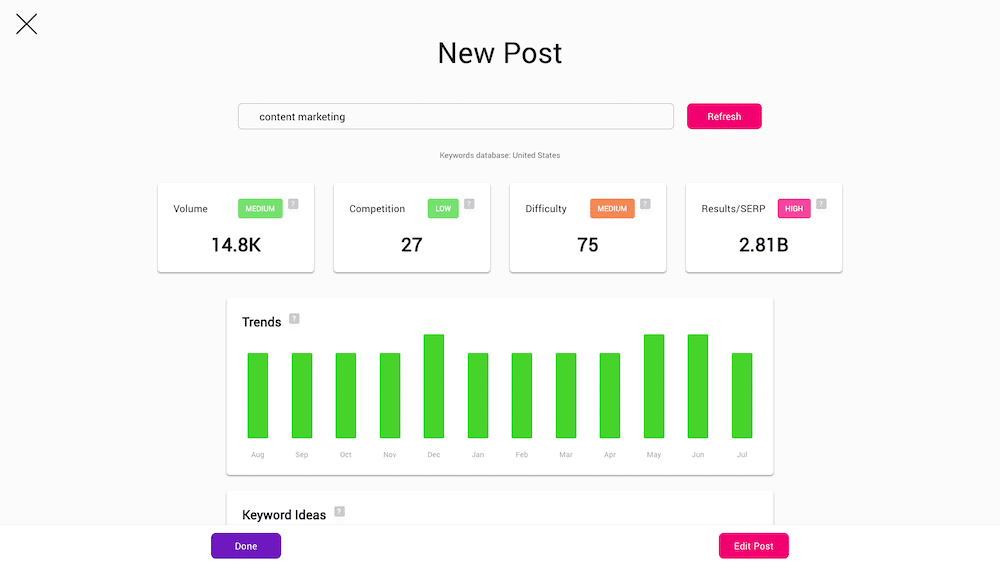
As you come up with topic ideas and titles, compare yours with searches per day, the variations of that keyword and the rank of other content in which you would like to beat.
Social media can be a full-time job if you are doing it correctly. It is tedious, time-consuming and completely necessary for content marketing growth.
14. Social Media Automation Software
When you write beautiful content, it would be a shame not to share it with the world. Right?

The good news is that there are some amazing SaaS tools that will help you automate your social posts out to the world at any time.
I personally love Buffer, Hootsuite, Social Oomph, and the one and only Zapier. They all will help you automate posts for the future, track the analytics behind each, and help evergreen blogs stay green.
15. Monetization and Advertising Tools
Don’t underestimate the power of paid advertising, especially when you are just starting out. Sometimes the truth is, you have to put money in to get money out.

Promotional advertising can be a beast if you are just getting into it. Be sure to know where your target audience visits most before you invest money into the platform for paid ads.
Facebook Ads, Twitter Ads, Pinterest Ads, Instagram Ads, and Google Ads are all very lucrative tools for helping to maximize reach for your content.

When creating a Google AdSense account, you can track your paid promotions.
Be sure to optimize your website by creating partnerships with affiliates, referrals, and links that could help you make money along the way.
16. Graphics Editing Tools
One of the best things about creating your own blog is that you can make it however you’d like – because it is all yours!
I encourage you to be unique, creative and passionate about your brand and that should shine through in your content.

The best blogging tools for beginners when it comes to creating graphics are the ones that help you create digitally.
If you are looking for help with branded images, logo design or e-newsletter creation, check out Canva or Dribbble.
These are all easy to use, have freemium options and can seriously enhance the look of your website, content and more. Have fun creating!
17. Referral and Affiliate Marketing Tools
Every penny counts when you are in business. Along with the monetization of your website, you should think about creating long lasting partnerships with affiliates and referral sources.
Referrals can come directly from content as you write blogs to educate your audience. Including valuable links can create lasting partnerships that can lead to converted sales.

Be sure to do your research with free resources at Content Marketing Institute.
Affiliate marketing brings in money as well! Be sure to stock your site up with banner ads, affiliate links, and integrations to your CRM database or payment options because these relationships are lucrative.
Authority Hacker reviews the best affiliate marketing tools so pick and choose the right ones for you.
18. Email Marketing Resources
The goal of content marketing is to educate and grow your audience. The tools needed to do that include email marketing software so you can grow your database.
There is an art to email marketing as it gets harder and harder to get into inboxes. Be sure you have top-notch tools to help you understand a good email marketing strategy.

Check out the HubSpot email marketing software as they are the masters of engagement and growth. MailChimp is a quick, free and easy tool to get your emails out there as well.
If you are looking at lead conversion and email sequence help, ConvertKit knows this business well. We personally use it here at Bramework!
19. Video and Image Editing Tools
Video is one of the most powerful tools in your content marketing tool belt. As the importance of impressing people quickly gets more and more important, video is a great way to increase brand awareness.
Video marketing is not something that you want to start unless you have the tools to help you, because quality video matters.
Depending on the type of video you choose, find a video platform to host it on. Some like YouTube, others want their videos to be hosted directly on their website to drive more traffic.
Check out tools like iMovie, OpenShot, or Final Cut Pro, and Lumafusion to help you make the best “movies” around. Action!
20. Integration and Migration Tools
Data migration and integration can be a bit complicated, especially when you’re dealing with client’s personal information.
When you conduct large-scale data migration it can be tedious and risky and can include mergers, acquisitions, implementation of new software, cloud-based migrations and it all needs to be very legal.

Different software requires different migration tools. Here is a complete data integration and application integration solutions directory by Solutions Review that may help you make the right decision.
We like integration tools like Zapier to do small automation functions connecting all the different software to our website.
Be sure to learn how it works and it can be the best tool for your website!
21. Writer Resources and Outsourcing Help
As you grow, which you will, you may need some additional resources to help you.
Blogs that do not have a dedicated content marketing employee often times will need outsourced help to get the job done.
It may be a challenge to find quality help without qualifying the candidate yourself. You can go two routes.
You can hire a company to do all content marketing or you can hire individuals that are project-based.

There are a few companies that help you find freelance content writing successfully that I recommend Upwork and Fiverr.
If you’re seeking content marketing agencies, check out this comprehensive list of top-rated companies from Clutch.
Or you can use Bramework and build a blog in minutes, not hours!
Overall, surround yourself with good people and your business will go far!
22. CRM Database Resources
Even though you are focused on blogging and the importance is on content marketing, however, don’t forget the end goal – convert those interested readers into engaged customers.

With everything you have learned thus far, you can see the importance of integration and marketing.
Email marketing needs a place to host it’s email recipients! Having a CRM database is crucial to converting those leads.
I highly recommend HubSpot as an all-in-one CRM, email marketing and lead conversion tool. It offers freemium options along with enterprise solutions. Other CRM solutions include Salesforce, ActiveCampaign, and Zoho.
Final Thoughts on Choosing the Best Blogging Tools for Beginners
There you have it! All the best tools for blogging.
For most people it takes hours to create one post when you have to do SEO and keyword research, outline, write content, design layout and find images – just to hope your blog ranks high on Google.

That’s why our software does it all for you!
Bramework software automatically creates titles, content, finds images, and even formats the post based on the topic you select.

Reach out to us if you are interested in testing out the features and kickstarting your content marketing strategy.
Happy Blogging!
(Original Article Date: January 21, 2020/Updated by Editor on October 1, 2024)
🎓 Join the Ultimate Blog Ranking Academy!
Unlock the Secrets to a $10,000 per-month Blogging Income





What I’ve learned is if you’re a passionate closet writer who wants to be published but can’t find a way to do so, make each keystroke your way to wealth by penning your own blog. Starting a blog doesn’t require extensive technical skills but it’s important that you have expertise in the field you are writing on. This will attract visitors to your site. Building a large following will enable you to earn profit by luring advertisers, writing paid reviews or getting commissions for promoting other people’s products.